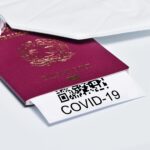Astonishing LMIA-Exempt Work Permits: A Guide for Citizens of Select Countries
Table of Contents
- Introduction: Seizing Canadian Work Opportunities Without an LMIA
- Free Trade Agreements: Your Gateway to Working in Canada
- CUSMA: Opportunities for Citizens of the United States and Mexico
- CETA: Easing the Path for European Workers
- CPTPP: Opportunities Across the Pacific
- Canada-Chile Free Trade Agreement: Facilitating Chilean Professionals
- Canada-Colombia Free Trade Agreement: Encouraging Colombian Talent
- Eligible Business Persons: Who Qualifies?
- How to Apply for an LMIA-Exempt Work Permit
- Key Takeaways: LMIA-Exempt Work Permits
- FAQ
Introduction: Seizing Canadian Work Opportunities Without an LMIA
For many foreign nationals, the prospect of working in Canada can seem daunting, often involving the complexities of obtaining a Labour Market Impact Assessment (LMIA). However, numerous pathways exist that allow citizens of specific countries to bypass this requirement, opening doors to exciting career opportunities. This article explores the various free trade agreements and international treaties that facilitate LMIA-exempt work permits, simplifying the process for eligible individuals. Grasping the nuances of these agreements can be the first step towards an incredible career in Canada.
Free Trade Agreements: Your Gateway to Working in Canada
Canada has established a network of free trade agreements (FTAs) with various countries, designed to foster economic cooperation and facilitate the movement of professionals. These agreements often include provisions that streamline the process for citizens of partner countries to work in Canada without the need for an LMIA. Understanding these agreements is crucial for individuals seeking to leverage their citizenship for Canadian employment. The elimination of the LMIA requirement not only reduces the bureaucratic burden but also significantly accelerates the process of obtaining a Canadian work permit.
CUSMA: Opportunities for Citizens of the United States and Mexico
The Canada-United States-Mexico Agreement (CUSMA), formerly known as NAFTA, provides significant advantages for citizens of the United States and Mexico seeking to work in Canada. CUSMA outlines specific categories of professionals who are eligible for LMIA-exempt work permits, including engineers, accountants, and management consultants. To qualify, applicants typically need to demonstrate that they possess the necessary qualifications and have a job offer in a specified profession. CUSMA’s provisions aim to enhance trade and investment by making it easier for professionals to work across borders. For citizens of the US and Mexico, CUSMA is a valuable avenue to explore when considering Canadian employment opportunities, providing a well-defined framework for obtaining work authorization.
CETA: Easing the Path for European Workers
The Comprehensive Economic and Trade Agreement (CETA) between Canada and the European Union (EU) offers numerous opportunities for EU citizens to work in Canada without an LMIA. CETA facilitates the temporary entry of key personnel, contractual service suppliers, and independent professionals. Key personnel are often intra-company transferees, while contractual service suppliers and independent professionals typically provide specialized services. CETA’s provisions aim to promote trade and investment between Canada and the EU by enabling the seamless movement of skilled workers. EU citizens can leverage CETA to explore career prospects in Canada, benefiting from a streamlined work permit application process that bypasses the LMIA requirement.
CPTPP: Opportunities Across the Pacific
The Comprehensive and Progressive Agreement for Trans-Pacific Partnership (CPTPP) is a trade agreement between Canada and 10 other countries in the Asia-Pacific region. This agreement creates opportunities for citizens of countries like Australia, Japan, and Singapore to obtain LMIA-exempt work permits in Canada. Similar to other FTAs, the CPTPP outlines specific categories of professionals who are eligible, including certain business visitors, investors, and professionals. The goal of CPTPP is to foster economic integration among member countries by reducing trade barriers and facilitating the movement of skilled workers. Individuals from CPTPP member countries should carefully review the agreement’s provisions to determine their eligibility for LMIA-exempt work permits in Canada.
Canada-Chile Free Trade Agreement: Facilitating Chilean Professionals
The Canada-Chile Free Trade Agreement (CCFTA) allows certain Chilean professionals to work in Canada without an LMIA. This agreement aims to strengthen economic ties between the two countries by simplifying the process for skilled workers to enter Canada. CCFTA specifies the categories of professionals who qualify, often including individuals in fields such as engineering, science, and technology. Chilean citizens seeking Canadian employment should explore the CCFTA’s provisions to determine if they meet the eligibility criteria for LMIA-exempt work permits. This pathway can offer a more direct and efficient route to securing work authorization in Canada.
Canada-Colombia Free Trade Agreement: Encouraging Colombian Talent
The Canada-Colombia Free Trade Agreement (CCoFTA) provides opportunities for Colombian professionals to work in Canada without the need for an LMIA. This agreement seeks to enhance trade and investment between the two nations by facilitating the movement of skilled workers. CCoFTA outlines the specific types of professionals who are eligible, typically including those in areas such as management, technology, and engineering. Colombian citizens interested in Canadian employment should review the CCoFTA’s provisions to ascertain their eligibility for LMIA-exempt work permits. This agreement offers a valuable avenue for Colombian talent to contribute to the Canadian economy.
Eligible Business Persons: Who Qualifies?
The specific requirements and eligible professions vary depending on the particular free trade agreement. However, some common categories of eligible business persons often include:
- Professionals: Individuals with specific educational qualifications and work experience in fields such as engineering, accounting, and consulting.
- Intra-Company Transferees: Employees of multinational companies who are being transferred to a Canadian branch or affiliate.
- Investors: Individuals who are making a significant investment in a Canadian business.
- Traders: Individuals involved in the trade of goods or services between Canada and the partner country.
Prospective applicants should carefully review the specific provisions of the relevant free trade agreement to determine if they meet the eligibility criteria.
How to Apply for an LMIA-Exempt Work Permit
The application process for an LMIA-exempt work permit typically involves several steps:
- Determine Eligibility: Confirm that you meet the requirements outlined in the relevant free trade agreement or international treaty.
- Obtain a Job Offer: Secure a job offer from a Canadian employer in an eligible profession.
- Gather Required Documents: Collect all necessary documents, including your passport, educational credentials, and proof of work experience.
- Complete the Application Form: Fill out the appropriate application form for an LMIA-exempt work permit.
- Submit the Application: Submit your application to Immigration, Refugees and Citizenship Canada (IRCC).
It is crucial to provide accurate and complete information to avoid delays or rejection of your application. You may also need to attend an interview with an immigration officer.
Key Takeaways: LMIA-Exempt Work Permits
- Free Trade Agreements: Canada has numerous FTAs that facilitate LMIA-exempt work permits for citizens of partner countries.
- CUSMA, CETA, CPTPP: These agreements offer significant opportunities for citizens of the United States, Mexico, the European Union, and countries in the Asia-Pacific region.
- Eligibility Criteria: Specific requirements and eligible professions vary depending on the agreement.
- Application Process: The process typically involves determining eligibility, obtaining a job offer, gathering documents, and submitting an application to IRCC.
FAQ
What is an LMIA?
An LMIA, or Labour Market Impact Assessment, is a document that Canadian employers may need to obtain before hiring a foreign worker. It assesses the impact of hiring a foreign worker on the Canadian labor market, ensuring that the hiring will not negatively affect employment opportunities for Canadian citizens or permanent residents.
What does it mean to have an LMIA-exempt work permit?
An LMIA-exempt work permit means that a foreign national can work in Canada without the employer needing to obtain a Labour Market Impact Assessment. This exemption streamlines the process, as it eliminates the need for the employer to prove that hiring a foreign worker will not adversely affect the Canadian labor market.
How can a citizen of a CUSMA country obtain an LMIA-exempt work permit?
Citizens of CUSMA countries, like the United States and Mexico, can obtain LMIA-exempt work permits by meeting specific requirements outlined in the agreement. Typically, this involves being a professional in a specified category, such as an engineer or accountant, having the necessary qualifications, and securing a job offer in that profession from a Canadian employer.
What are the benefits of the CETA agreement for EU citizens seeking work in Canada?
The CETA agreement simplifies the process for EU citizens to work in Canada by facilitating the temporary entry of key personnel, contractual service suppliers, and independent professionals. This means EU citizens may be able to bypass the usual LMIA requirements, making it easier and faster to obtain a Canadian work permit.
Talk to us to find out more. ->
The content above is not intended to provide legal advice or opinions of any kind and may not be used for professional or commercial purposes.







